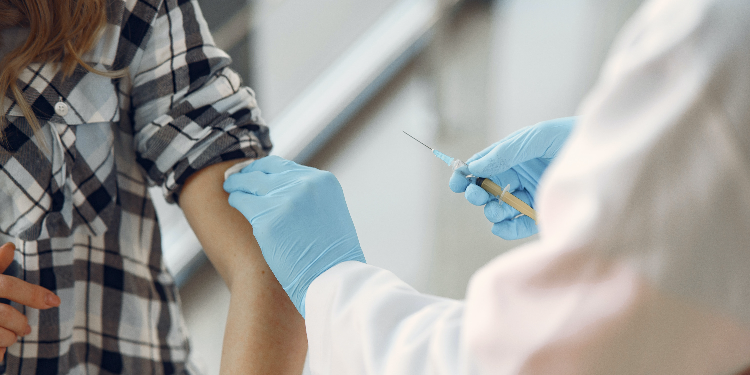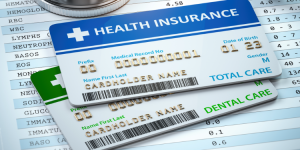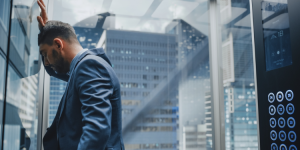
The COVID-19 vaccination campaign is progressing in many countries, mainly in Europe and the United States. However, there's one question that still needs to be addressed. Are expats entitled to vaccines in their host country and under what conditions?
Expats kept in the dark
Last December, the British government warned British expats who currently live abroad to avoid travelling to the UK to get vaccinated. Non-essential travel is banned until further notice. Moreover, the UK claims that it has not yet received all of the 350 million doses ordered. Front-liners and the most vulnerable groups are being prioritised. But thousands of expatriates are left wondering whether they will be able to get vaccinated their host countries.
According to local authorities, only British citizens returning to the country to stay long term will be placed on the Joint Committee on Vaccination and Immunization (JCVI) priority list. The rest of them will, therefore have to make the necessary arrangements in their host countries. The UK also points out that application for vaccination cannot be made from abroad. Although new vaccination centres are being set up across the country, the National Health System (NHS) is saturated. So it's going to take some time before the rest of the population gets vaccinated.
In many other countries, like China, Europeans expats, in particular, are struggling to find answers. According to the local media, large Chinese companies that received vaccines have prioritised their local employees, except for some more global industries, including international schools. The local media also reports that some companies in Beijing only got the opportunity to request vaccines for their local employees. Meanwhile, the Shanghai Health Commission confirmed that the priority vaccination plan excluded expats and citizens of Hong Kong, Taiwan and Macao.
Japan hasn't communication officially on the vaccination of expatriates. However, the Japanese Minister of Administrative Affairs recently wrote on Twitter that foreign nationals, including expatriates and diplomats living in Japan, could be vaccinated provided they are registered as residents at the nearest municipality. Those who are not registered should contact the local authorities in the region where they currently live.
France hasn't made any special arrangements either for the French living overseas. In December 2020, the State secretary who is responsible for French people living overseas indicated that their vaccination would depend on the availability of vaccines in their host country. However, France has pledged to provide financial aids for French people living in countries where the vaccine isn't free of charge. In fact, in countries where the vaccine is paid for, the Caisse des Français de l'Étranger (CFE) guarantees 100% coverage in the limit of 60 euros for two injections upon presentation of an invoice. French people returning to France during the crisis can also be vaccinated for free. On the other hand, American expats living abroad are advised to follow the instructions issued by the local authorities since COVID-19 vaccination overseas is not covered by the US government.
In Switzerland, frauds were reported during the vaccination campaign. The government, therefore, warns to foreigners to avoid travelling to Switzerland just for the sake of being vaccinated against COVID-19. Only frontier workers and residents with Swiss insurance can be vaccinated free of charge in their respective cantons. An exception is also made for foreign healthcare professionals who are in contact with patients in Swiss hospitals even if they don't have a Swiss insurance card.
In Kuwait, segmented expat groups have been placed on the free vaccination priority list, including seniors and front-liners. Meanwhile, the United Arab Emirates requires three mandatory documents from expatriates who wish to be vaccinated -- an Emirati ID card, a copy of their residence visa and a medical certificate attesting that they are suffering from a chronic disease.
Expats have their say about the vaccine
Most expats have mixed feelings about the COVID-19 vaccine. While some of them are formally against it, others see it as a ray of hope, like Sylvain, a French expat in the United States. “I am at risk. I was admitted to hospital last year with flu and lost loved ones to it. So, yes, I will get vaccinated as soon as possible. I want to be able to return to Europe this summer, see my relatives and hug them, including my 87-year-old parents who were both vaccinated last week, with zero side effects”. Moreover, Sylvain's daughter, who is a health professional, didn't have to think twice before getting vaccinated last week. "People have to realise that they are not getting vaccinated for themselves but for others, to stop transmission to people who are potentially at risk." Frank, who lives in Germany, shares the same views. “I believe that there are many others who should have higher priority than generally healthy middle-aged men like me. So I will wait until my turn has come. But then I will get vaccinated. A celebration is due when everyone is immune and life can get back to normal.”
Amelia, a Canadian expat in Greece, Amélia is also waiting for her turn to be vaccinated. “I took my father in law to be vaccinated. Applications are done electronically on the government page. Greece is vaccinating with the Pfizer vaccine the group of people 80 +. All our medical and health workers have been voluntarily vaccinated. The next group will be 60 + and then I think it will be 40 +. She explains that the application can be made online. "A message with your vaccination date, your second vaccination date and the centre closest to your home is sent to your Email. You then agree or disagree. The date is usually around one month from when you apply. The quicker everyone is vaccinated, the quicker this blooming pandemic will go away".
Philippe is a Belgian who returned from Ghana where he was on a professional assignment. “The nature of my job requires me to travel very regularly, so obviously I'll have to be vaccinated. But like everyone else, I'm quite sceptical with all the questions that remain unanswered. I'm not anti-vaccine, but I have serious doubts about the responsiveness of pharmaceutical companies, especially since many diseases have remained without vaccine for a very long time”.
In Morocco, arrangements have been made for the vaccination of foreign residents. "In Agadir, for example, the first vaccinations of residents took place a few days ago, following the same procedures as Moroccans", says Thierry, a French retiree. Still, he doesn't want to be vaccinated. “I'm not against vaccination (for example, against polio, tetanus or rabies), but my wife who is 62 and I (64 years old) definitely won't apply. My sister, who is 73 years old, and my mother, who is 94 years old, won't either. There are many reasons for it. We don't trust the speed at which the vaccine was developed and have doubts about its efficiency, as well as the duration of protection ”. Thierry believes that precautions taken by Moroccans can better help in defeating the pandemic. His views are shared by Alain, a French expat in Spain, who says he was affected by the first wave, and Jerome who currently lives in Thailand.
For Claude, an expat in Ivory Coast, vaccination isn't even an issue. “For now, the situation in Ivory Coast isn't alarming. But anyway, I will not get vaccinated until we all get a clearer picture of what's happening”.



















